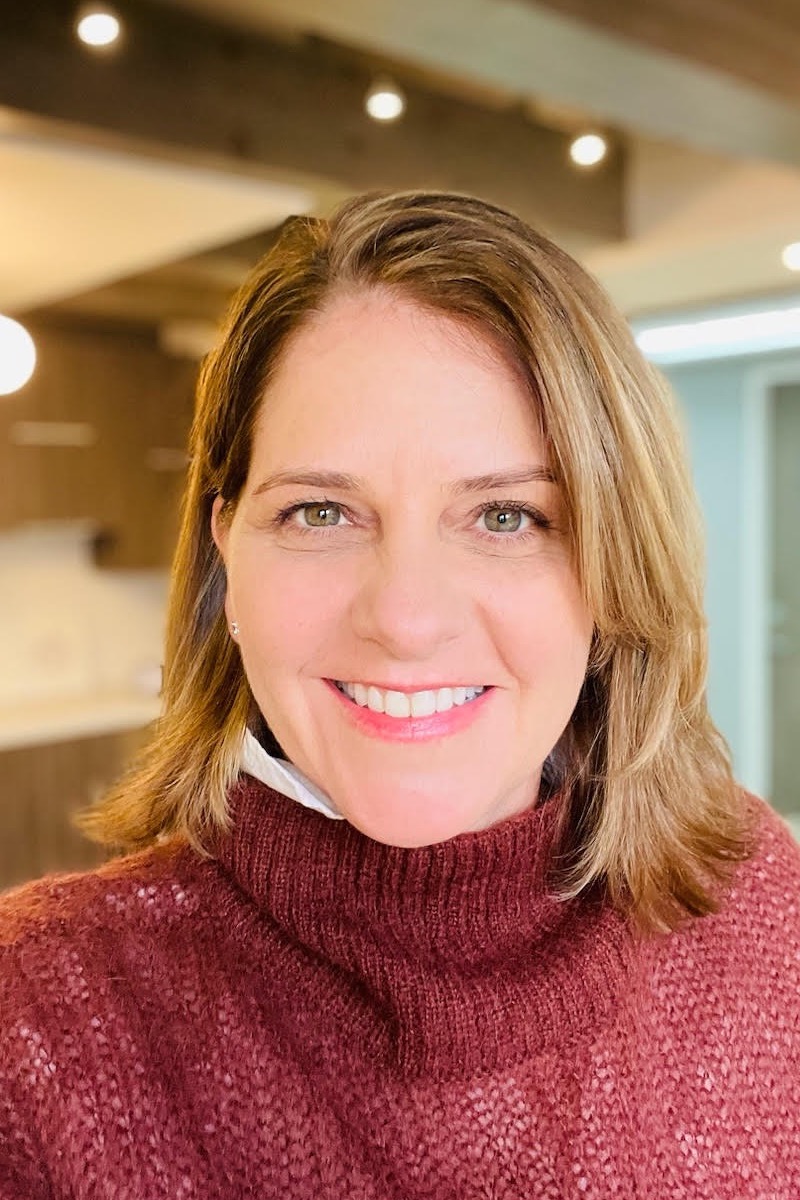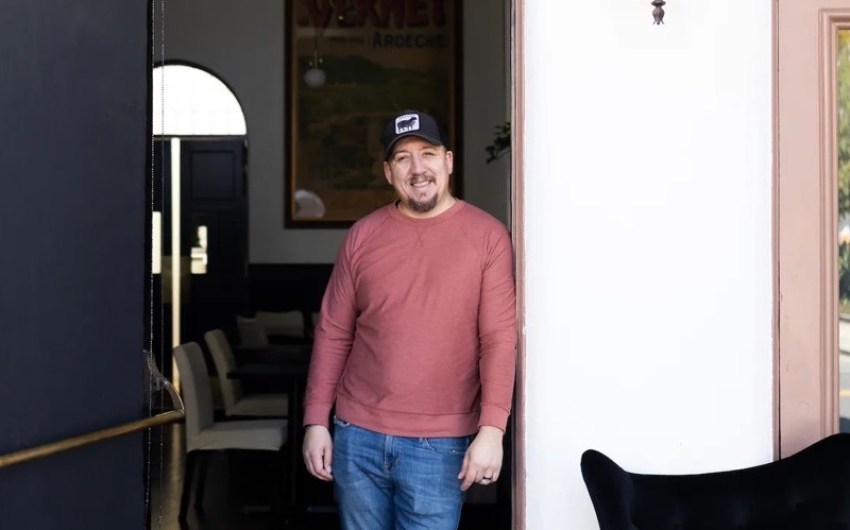The Principles of the Pleasure Project
Santa Barbara Sex Specialist Dr. Jenn Kennedy Discusses Women’s Sexuality, Working with Couples, and How She Found Her Way to the Pleasure Project

Embarking on a new chapter in life is seldom a seamless transition, yet for Dr. Jenn Kennedy, the journey from a successful career in photography and writing to a thriving psychotherapy practice was a remarkable leap at the age of 40. Driven by a clear vision of assisting couples, Kennedy navigated the rigorous licensing process with unwavering focus and efficiency.
Typically, therapists don’t approach couples’ work with lukewarm sentiments; it’s not for the fainthearted. Working with couples can be fraught with intensity, laden with conflict, and marked by competing agendas. Kennedy, however, has embraced these challenges and cultivated a flourishing practice dedicated to serving couples. Identifying a recurring theme in her clients surrounding their sex lives — she pursued a deeper understanding by earning a PhD in sexology and teaching in the graduate program at Antioch University Santa Barbara.
Armed with a decade of clinical expertise and a robust theoretical foundation, Kennedy has curated tailored content to address the unique needs of both couples and women. The Pleasure Project, launched in January 2023 (pleasureproject.us), encompasses a podcast, blog, and online facilitated small groups. Kennedy, through her podcast, engages with professionals across various fields, delving into topics such as desire at older ages, pelvic floor pain, body image, low libido, and sexual performance anxiety.
The transformative Pleasure Circle, a small group initiative, has proven instrumental for its participants. Kennedy intertwines theory with practical application by delivering lectures on sexuality, followed by writing prompts for participants to reflect on their own experiences. The ensuing exchange of insights among group members fosters a uniquely grounding and affirming avenue for healing and growth. Kennedy emphasizes that participants get to “see themselves reflected, leaving with a sense of normalcy and increased self-acceptance.”
Kennedy, who supervises up and coming therapists and operates Riviera Therapy in Santa Barbara, discussed her background and her practice with Rebecca Capps, CEO of Mind-Body Thrive and a licensed Marriage & Family Therapist specializing in eating disorders and body image issues.
What inspired you to specialize in sex therapy?
We are sexual beings, and a healthy sex life is a fun part of our overall wellness. I’ve enjoyed a vibrant sex life, and I want the couples I see to feel comfortable and supported opening up about this touchy topic. Sex is also a microcosm of our larger life. The dynamics at play in the everyday manifest in the sexual dynamic.
How does one’s sexual well-being contribute to their overall wellness?
While not a necessity, a satisfying sexual experience can significantly enrich our lives. We feel more alive, more playful, and connected to self and others when we are sexual in a satisfying way.
What are some common misconceptions or stigmas related to sexual health, and how can they impact overall wellness?
So many people have mediocre sex lives. They believe that is all it can be, which just isn’t true. Also, many people falsely believe that asking for what they want will somehow upset their partner. Instead, I find that most partners appreciate a road map and some honest desire being expressed.
How can healthy communication about sexual-related matters positively affect relationships and mental well-being?
If we say what is true — what we like or want and honestly engage in sex, it shifts the dynamic. It opens the energy for more authenticity and lightens the mood. When we guard our true feelings, it blocks the flow and can create avoidance and resentment.

How would you advise individuals or couples seeking to enhance their sexual communication?
Begin by exploring what turns you on; learning your own body and mind is a critical place to start. Once you can effectively express your preferences to your partner, there’s a better chance of fulfilling your desires. Given our unique differences, our arousal preferences naturally differ as well. Successful intimate connections with a partner involve vulnerability, fostering a deeper and more meaningful bond.
How does stress and mental health affect sexual wellness, and what strategies can people use to mitigate these effects?
Stress is such a desire killer. In the hierarchy of things, sex falls low on the list as you tend to all the other priorities. You must know “the why” before you can find “the how.” Decide that intimacy matters to you and that you will cultivate it in your relationship. It’s not a one-shot deal — it requires consistency and attunement.
Can mindfulness and meditation practices enhance one’s sexual experience?
Absolutely; mindfulness proves to be invaluable in this context. By guiding individuals into a centered, tranquil, and body-focused state, it creates an environment conducive to the flourishing of sexual desire and experiences. I often recommend Sensate Focus for couples who have experienced a hiatus in intimacy. This approach begins with non-sexual touch, emphasizing the importance of connection without the goal of reaching orgasm. It lowers the stress and helps both partners ground in a way that later serves them in partnered play.
What role does body image play in sexual satisfaction, and how can individuals work on improving their self-esteem in this context?
Body image often emerges as a primary obstacle to sexual satisfaction, particularly for women. Feelings of self-consciousness and a perceived lack of lovability can act as distractions, hindering genuine connection. Body image is first and foremost the job of the individual — to love and accept self. Ideally the partner is also affirming and genuine in their expression of their attraction, which reflects desire and acceptance.
What are some of the most common concerns or issues that clients seek sex therapy for, and how do you address them?
Low desire comes up a lot. Typically, that is just the beginning of the story. Desire is attached to many other things, which can be biological (medication, fatigue), psychological (depression, anxiety, low self-esteem, fear of failure), or interpersonal (tension between partners, poor communication, resentment). Our work together is to unpack their unique challenges and find ways to address obstacles.
Can you recommend any books, websites, or resources for readers interested in furthering their knowledge on sexual wellness and therapy?
I love the work of Esther Perel and Emily Nagoski. I offer various resources for individuals and couples wanting to jumpstart their sex life. My next Pleasure Circle small group starts in March. Additionally, I provide the following free resources:
Podcast: pleasureproject.us/podcast
Small groups and retreats: pleasureproject.us/small-group
Newsletter: pleasureproject.us
Premier Events
Sun, Apr 28
6:00 PM
Santa Barbara
AHA! Presents: Sing It Out!
Thu, May 02
5:00 PM
Santa Barbara
Things with Wings at Art & Soul
Sat, May 04
10:00 AM
Lompoc
RocketTown Comic Con 2024
Sat, Apr 27
11:00 AM
Santa Barbara
Santa Barbara Plant Fest
Sat, Apr 27
3:30 PM
Santa Barbara
Santa Barbara Trapeze Co and Unity Shoppe Spring Food Drive
Sat, Apr 27
8:00 PM
Santa Barbara
Beau James Wilding Band Live
Sun, Apr 28
11:00 AM
Santa Barbara
Santa Barbara Earth Day Festival 2024
Wed, May 01
7:30 PM
Santa Barbara
American Theatre Guild Presents “Come From Away”
Thu, May 02
5:00 PM
Santa Barbara
100th Birthday Tribute for James Galanos
Thu, May 02
5:00 PM
Santa Barbara
Meet the Creator of The Caregiver Oracle Deck
Fri, May 03
4:00 PM
Santa Barbara
Santa Barbara Fair+Expo “Double Thrill Double Fun”
Fri, May 03
8:00 PM
Santa barbara
Performance by Marca MP
Sat, May 04
10:00 AM
Solvang
Touch A Truck
Sun, Apr 28 6:00 PM
Santa Barbara
AHA! Presents: Sing It Out!
Thu, May 02 5:00 PM
Santa Barbara
Things with Wings at Art & Soul
Sat, May 04 10:00 AM
Lompoc
RocketTown Comic Con 2024
Sat, Apr 27 11:00 AM
Santa Barbara
Santa Barbara Plant Fest
Sat, Apr 27 3:30 PM
Santa Barbara
Santa Barbara Trapeze Co and Unity Shoppe Spring Food Drive
Sat, Apr 27 8:00 PM
Santa Barbara
Beau James Wilding Band Live
Sun, Apr 28 11:00 AM
Santa Barbara
Santa Barbara Earth Day Festival 2024
Wed, May 01 7:30 PM
Santa Barbara
American Theatre Guild Presents “Come From Away”
Thu, May 02 5:00 PM
Santa Barbara
100th Birthday Tribute for James Galanos
Thu, May 02 5:00 PM
Santa Barbara
Meet the Creator of The Caregiver Oracle Deck
Fri, May 03 4:00 PM
Santa Barbara
Santa Barbara Fair+Expo “Double Thrill Double Fun”
Fri, May 03 8:00 PM
Santa barbara
Performance by Marca MP
Sat, May 04 10:00 AM
Solvang



























You must be logged in to post a comment.